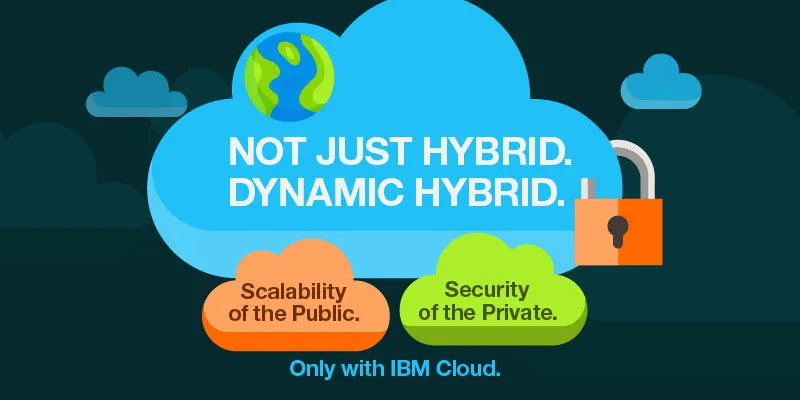This article is sponsored by IBM
Cloud computing has evolved from a technological innovation to an integral part of business. Organizations continue to explore various cloud deployment options, but for many, a hybrid cloud works best as it gives you the freedom to be agile, and the peace of mind in keeping your data private and secure. Each organization’s unique business conditions and requirements define its own ideal hybrid cloud infrastructure.
There are divergent points of view as to how the cloud should be used, but we can all agree to the fact that today, almost every company is using the cloud. According to a new IBM study, seventy-eight percent of respondents say their cloud initiatives are coordinated or fully integrated, compared to just 34 percent in 2012. Among high performing organisations, that number climbs to 83 percent! At the same time, nearly half of their workloads - 45 percent - are expected to remain on-premises with dedicated servers. Finding the right cloud technology begins with deciding what part of your infrastructure to move to the cloud and addressing the challenges that affect migration; particularly as we enter the era of cognitive computing. Of course, most cloud deployment models bring with them the power of scalability and speed of deploying new business models, but what we now need to think of is leveraging data and utilizing the true transformative power of the hybrid cloud.

The hybrid cloud integrates cloud resources with traditional IT infrastructure and business processes. In doing so, it allows for a degree of flexibility and agility that was unthinkable earlier. IBM has been building its cloud strategy to capture the profitable, high-end cloud services that often combines IBM’s unique research capabilities, industry expertise and the extensive services relationships with the most demanding enterprise clients. By aligning data and cognitive capabilities with the hybrid cloud, enterprises can identify and leverage trends to improve business faster, and more effectively.
IBM hybrid cloud allows clients to freely select development tools, APIs, open technologies, platforms and cloud deployment models that accelerates business results. IBM delivers choice with consistency through a unified open environment. It is about implementing and managing any combination of cloud - Public or private, on or off-premise, hosted or self-managed, virtual machines, bare metal servers - and combining them as needed with hardware, software and applications the client already has.
Hybrid cloud enables an organisation to quickly get started on the path to digital transformation, regardless of size and capital expenditure.
To learn more about the advantages of IBM’s Hybrid Cloud and how it will transform your organisations infrastructure attend the IBM Cloud Innovation Forum event.
Summation
- The hybrid cloud facilitates innovation, lower total cost of ownership, enhanced operational efficiencies and enables organisations to meet customer expectations like never before.
- The IBM cloud integrates cognitive computing, DevOps, Mobility Services and robust analytics, enabling customised deployment models.
- By 2020, no-cloud policies will be near obsolete and the hybrid cloud model will become the de facto choice for most businesses.







